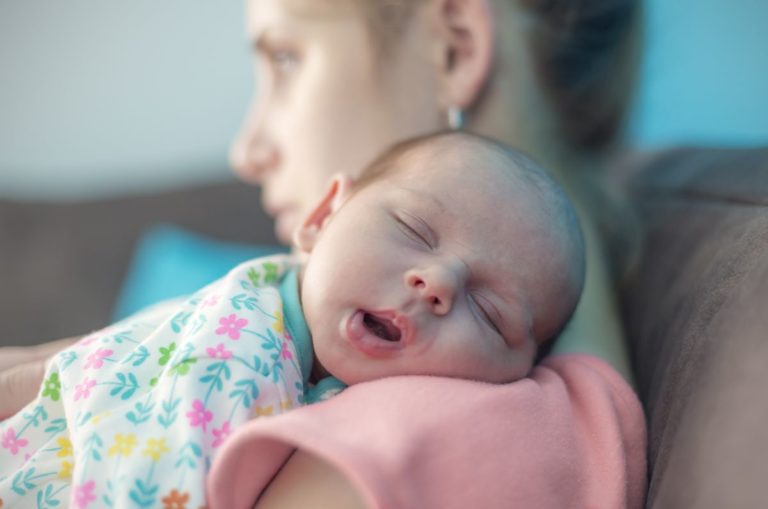Every postpartum circumstance is unique to every mother. Some breeze through recovery, while others deal with more pain and stress from childbirth. Whatever your situation may be, you still need to look after yourself. Below are several ways to take care of yourself both mentally and physically.
Get Proper Rest
It comes as no surprise that getting adequate sleep is on the top of the list for postpartum self-care. Since you went from stressful bouts of labor to restless nights of taking care of your child, it’s no wonder you’re going to feel overwhelmed and exhausted. Getting a full eight hours of sleep is a godsend in the next few months.
If things are becoming too hectic for you, consider letting someone take care of feeding your baby for the first few weeks. By asking for help from others, you’ll have proper time to take care of yourself. Furthermore, you can have more time for yourself when you lessen visitors and entertain them less. Pass on conversing with guests to another member of the household or stop all visits altogether.
Eat Enough for Yourself and Your Breastfeeding Child
Nutrition is paramount in postpartum care. Your body is bound to be exhausted and depleted by childbirth, and it’s your job to take all precautions to let your body heal faster. The best way for recovery is through keeping a healthy and balanced diet with all the needed vitamins you need. The case for proper nutrition only gets stronger when you’re breastfeeding your baby.
Doctors recommend eating when you’re hungry, but you might forget to cook healthy meals from all the work you need to take care of your child. Hence, it’s best to let the father (or anyone in the household for that matter) prepare meals in advance. With meal prep, you can quickly microwave your dinner and get proper nutrition.
Keep Your Mental Health In Check
Postpartum disorders are all too familiar to new mothers. They can experience postpartum depression, OCD, PTSD, or bipolar disorder from the stress of childbirth. The common symptoms of postpartum disorders can be:
- Severe mood swings.
- Having a hard time taking care of the baby.
- Extreme fatigue and stress.
- Restlessness.
- Anxiety attacks. Or;
- Excessive crying.

If you’re experiencing any of these symptoms, assess your current situation. If the symptoms persist after two weeks or spiral further, it’s time to book an appointment and get treated for postpartum depression. However, even if you’re not going through postpartum disorders, you still need to take care of your mental health. Always be kind to yourself and avoid comparing yourself to others. Remember, your postpartum situation is unique to you.
Staying Fit Postpartum
Some of us want to return to the figure we had before our pregnancy. We await the day we can start exercising and hit the gym till we run out of stamina. However, that routine isn’t advisable after giving birth. Do note that easing back to regular exercise takes time and considerable effort. Be patient, and the results will show. Remember, your body experienced drastic changes in the past few months you were pregnant. You will do a disservice to your mental and physical health if you rush it.
Once your doctor has given you the signal to start working out, start postpartum exercises slowly. Yes, this rule applies to gym-frequenting moms, too. If you force yourself too hard, you might even slow your body’s natural recovery. Consider doing brisk walks around your local park or stretches at home. Stop the routine once you experience any nagging pain and continue the next day. Albeit simple, these workouts can still get your adrenaline running.
If you’re breastfeeding, try not to lose weight until a month after giving birth. Maintaining weight is crucial to let your body’s natural milk supply grow. Don’t worry, though; you’ll naturally lose weight after your body revitalizes itself postpartum. Take note that breastfeeding mothers need a surplus of 500 calories.
Another aspect you need to look out for is doing workouts that can affect your joints negatively. Your body naturally softens its ligaments and joints during pregnancy and after giving birth through the Relaxin hormone. Hence, it would be best if you avoided rigorous routines at all costs. Consider doing postpartum exercises that heal the body and soul. Try swimming and yoga! Both workouts do wonders for your flexibility and in strengthening your core. Plus, it’s easy on the joints and pelvic floor too.
The last thing you should remember when working out postpartum is taking adequate rest and drinking enough water. While we all know staying hydrated while exercising replenishes you, it’s more vital than ever to drink water after childbirth, particularly if you’re breastfeeding.
Keep all of these tips in mind and make sure you have a sound support system to lessen the burden of postpartum recovery. We will get through this!

